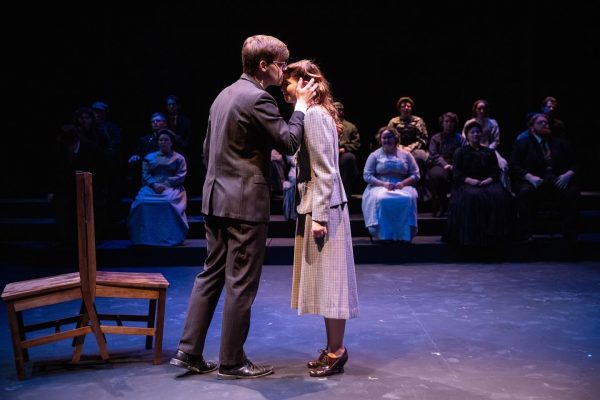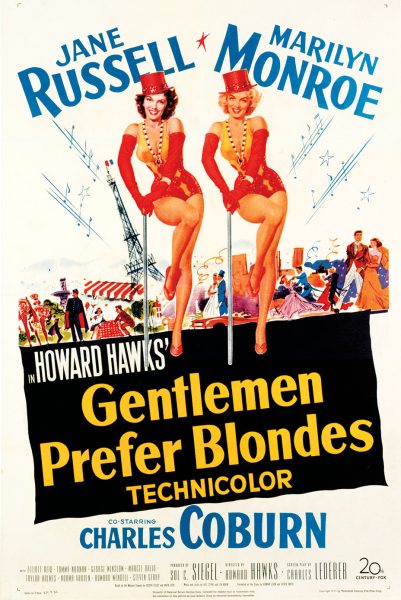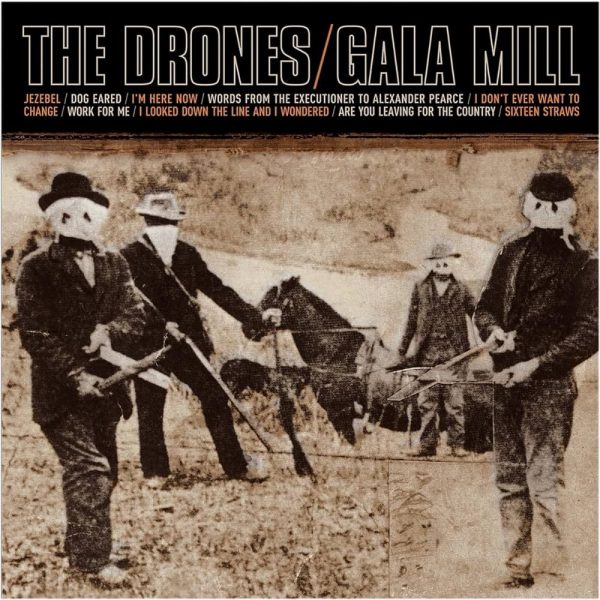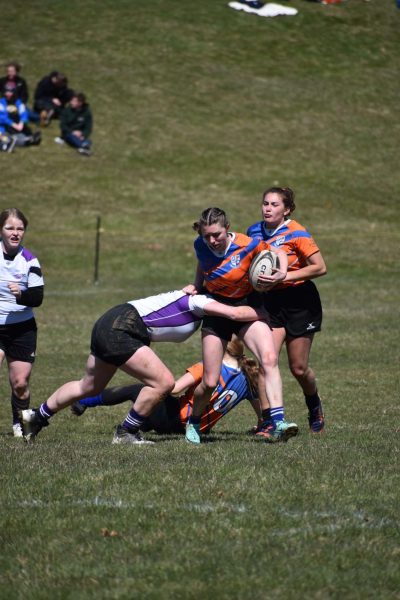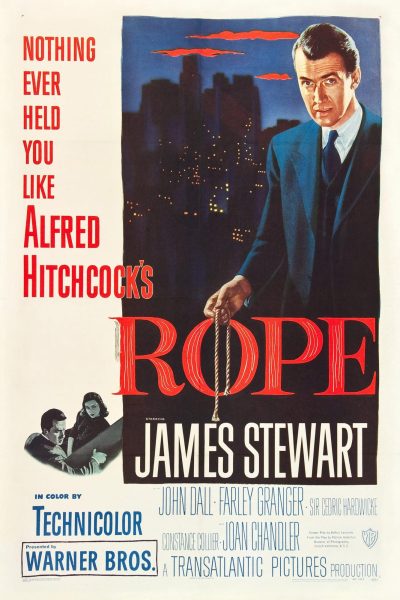Editorial: Taking a knee for silent protest
Kneeling for the American flag is a peaceful representation of freedom of expression.
As the University of Wisconsin-Platteville prepares to mark the 65th anniversary of Brown v. Board of Education, the Exponent will be publishing a series of articles relating to race and segregation issues that have occurred in the Platteville area.
In recent years, controversy has erupted around the National Football League players taking a knee during the national anthem in protest to police brutality and poor treatment of minorities. Collin Kaepernick, the former quarter back for the San Francisco 49ers, was the leading player in this protest who inspired numerous other players to join him. These players were following in a tradition that goes back to the 1960s when two Olympic sprinters, Tommie Smith and John Carlos, raised their fists to salute “black power” on the medal stand while the national anthem was being played during the 1968 Olympics.
However, most current members of the Platteville community are not aware that a similar protest occurred on our campus. As reported in the Exponent on Feb. 8, 1969, a UW-Platteville men’s basketball player refused to recognise the American flag during the National Anthem.
While many Americans understand these forms of protest as the exercise of our constitutional right to free speech, a vocal group of Americans has expressed outrage over them.
I would like to take the upcoming anniversary of Brown v. Board of Education to challenge our university and community to think critically about these protests and the athletes who have engaged in them.
It’s important that we take this opportunity to reflect on why they are choosing to silently protest the flag of a country that doesn’t grant them equal liberties. What these athletes have done is not illegal, disrespectful nor unpatriotic.
In fact, some of the main ways in which people disrespect the American flag are by using it for clothing, disposable products (paper plates and napkins) and carrying it flat – something that is done at the beginning of almost every football game…food for thought.
The original article in the Exponent does not explicitly state the student’s reason for refusing to stand, but additional editorials published in the following weeks shed light on his decision. The protest occurred in the midst of the Civil Rights Movement in rural Wisconsin, and he was choosing to peacefully protest the inequalities faced in the small town of Platteville. Though this town has become more accepting over the years, there are many articles in the archives of the Southwest Wisconsin room, including one entitled “University Community Talks Pro and Con about Town”, where students discuss how Platteville was not accepting towards people of different ethnic and racial backgrounds.
A series of editorials titled “Silent Voices” records harsh criticisms students had of the university in the 1960s because of the climate on campus towards people of different races. The Ebony Club, a precursor of the Black Student Union, formed in 1967 to advocate for the inclusion of minorities on campus. Nationally, Martin Luther King, Jr., Malcolm X and Fannie Lou Hamer were engaging in acts of protest and resistance. It’s only natural that students at Platteville did their part, as well.
Similar to the silent protest at UW-Platteville, Kaepernick started kneeling during the national anthem at the beginning of football games in 2016 to bring attention to the police brutality and poor treatment of minorities in the United States. He has been quoted in several news articles and sport magazines saying that he was doing this protest not to stand out and be disrespectful, but, according to the NFL website, to bring attention to the oppression minorities have to face every day.
Kaepernick was quoted on the NFL website saying, “I am not going to stand up to show pride in a flag for a country that oppresses black people and people of color…To me, this is bigger than football and it would be selfish on my part to look the other way. There are bodies in the street and people getting paid leave and getting away with murder.”
The intentions of these protests were not to disrespect those who have served our country, but to bring awareness to those fighting every day in our country to get equal access and fair treatment.
We should stand firmly by the right to freedom of expression, just like these athletes have done. They are expressing their dissatisfaction in our country’s ability to respect and treat everyone with fair, equal and tolerable behavior. We can continue to grow together to ensure change. If one college student did this in 1969, we, as a campus community, can stand up, or take a knee, to fight against the oppression still happening today.





